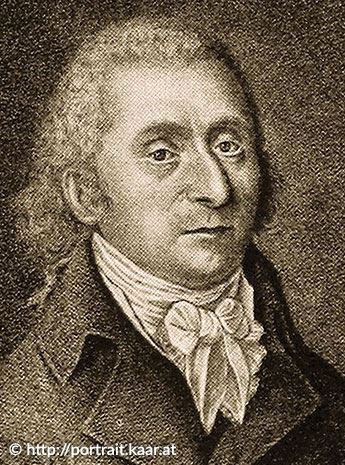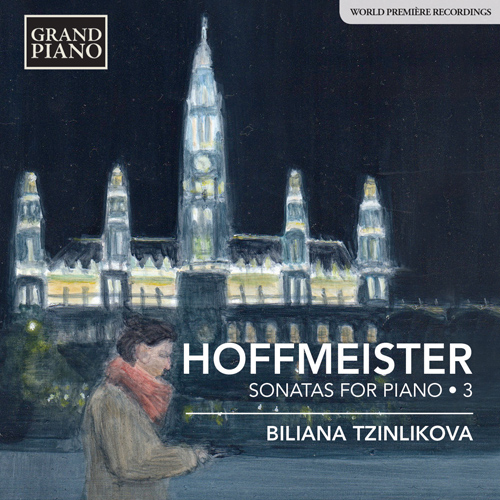
Franz Anton Hoffmeister (1754 - 1812)
Franz Anton Hoffmeister is one of the “known unknown” figures in the history of music. He is known as one of the founding fathers of the music publishing industry that was at its zenith in the German-speaking territories in the 19th century and remains active to this day. Great German and Austrian music publishing houses trace their ancestry to this man from the Swabian town of Rottenburg am Neckar. His “dear brother” Beethoven was greatly indebted to Hoffmeister’s far-sightedness as a publisher (which was sometimes greater than his business acumen), as were Mozart, Haydn and many other composers of the day. These composers were “brothers” in the Masonic sense, but also in the musical parlance of the period. In 1786 Hoffmeister’s friend Mozart, who was two years his junior, dedicated a string quartet to him—K499 in D major. It is unfair to describe Hoffmeister as a businessman who composed nice music as a sideline, particularly in view of the fact that he was more of a visionary founder than a capable tradesman. Equally, filing him away as one among many minor composers of the Viennese Classical period doesn’t go far enough.
Franz Anton, the eighth of eleven children, was born into a respected family of middle-class town-dwellers. His ancestors included mayors of Rottenburg. He was sent to Vienna to study law when he was still only 14, but music in general, and playing the organ in particular, increasingly took over. It was in the Imperial capital that he achieved his first successes with highly imaginative compositions. Founding his first publishing house was a pioneering move, but not one blessed with any lasting commercial success. It wasn’t until he and Ambrosius Kühnel set up the “Bureau de musique”—now C.F. Peters—in Leipzig in 1800 that he succeeded in establishing a publisher with a global reach. However, Hoffmeister seems to have seen himself first and foremost as a composer and organist, for having established the Bureau, he made the firm over to its employees as early as 1805 (not without a measure of conflict) and returned to his adopted home, Vienna, where he was well respected until his death in 1812.
Symphonies, string quartets, clarinet concertos, notturni—there are now a lot of Hoffmeister recordings. What is lacking is any real catalogue of his works. In any event, Hoffmeister not only wrote at least 60 symphonies, probably five piano concertos, and the viola concerto that is well-known because de rigeur for any viola player applying for orchestral posts, but also nine operas of which one, Der Königssohn von Ithaka to a libretto by Emanuel Schikaneder, was a real success c.1880.





 Grand Piano has gained a reputation for producing high quality recordings of rare keyboard gems. Dedicated to the exploration of undiscovered piano repertoire, the label specialises in complete cycles of piano works by many lesser-known composers, whose output might otherwise have remained unknown and unrecorded.
Grand Piano has gained a reputation for producing high quality recordings of rare keyboard gems. Dedicated to the exploration of undiscovered piano repertoire, the label specialises in complete cycles of piano works by many lesser-known composers, whose output might otherwise have remained unknown and unrecorded.






